Protein vs Amino Acids: Difference Explained
Author:
Unlock your full potential by engaging with our experts and community! Have questions about your fitness journey or looking for expert advice on weightlifting techniques? Don’t hesitate — leave a comment below and Oleksandr Maksymenko will provide a personalized answer and insights to help you reach your goals.
Torokhtiy is reader-supported. Some links are affiliate links, and we may earn a commission at no extra cost to you. See our disclosure page for details.
Protein vs amino acids? These are popular supplements among fitness enthusiasts, but many people are unsure about their differences. Here we compare and contrast the two to help you determine whether you should take amino acids or protein.
Protein vs amino acids – Protein powder contains whole proteins derived from various sources to help you meet total daily protein requirements. Amino acids are the building blocks of protein and can be supplemented to target individual amino acid needs.
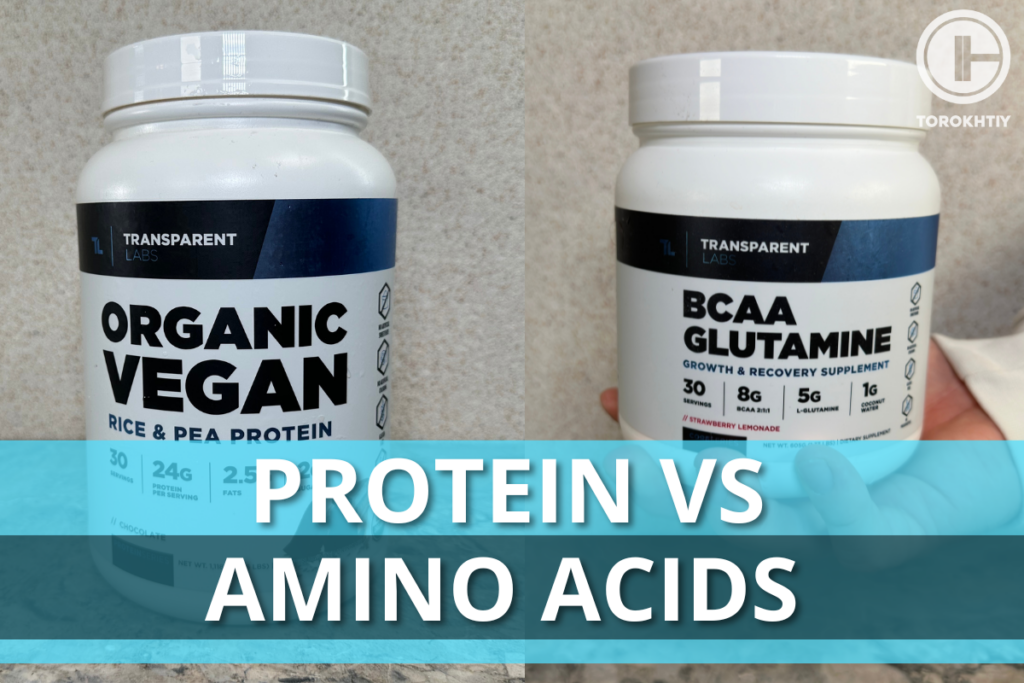
What Is Protein Powder?
Protein powder is a dietary supplement that is made from various sources, such as milk, soy, and pea.
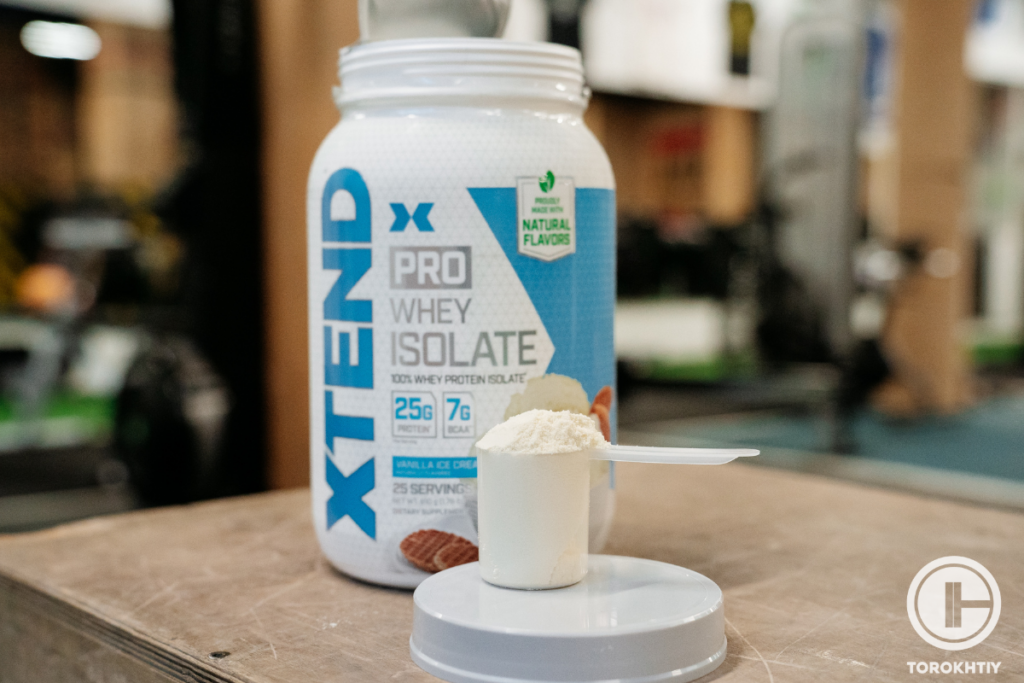
What Are Amino Acids?
Amino acids make up protein. There are 20 different types, nine of which are essential and must be obtained from the diet.
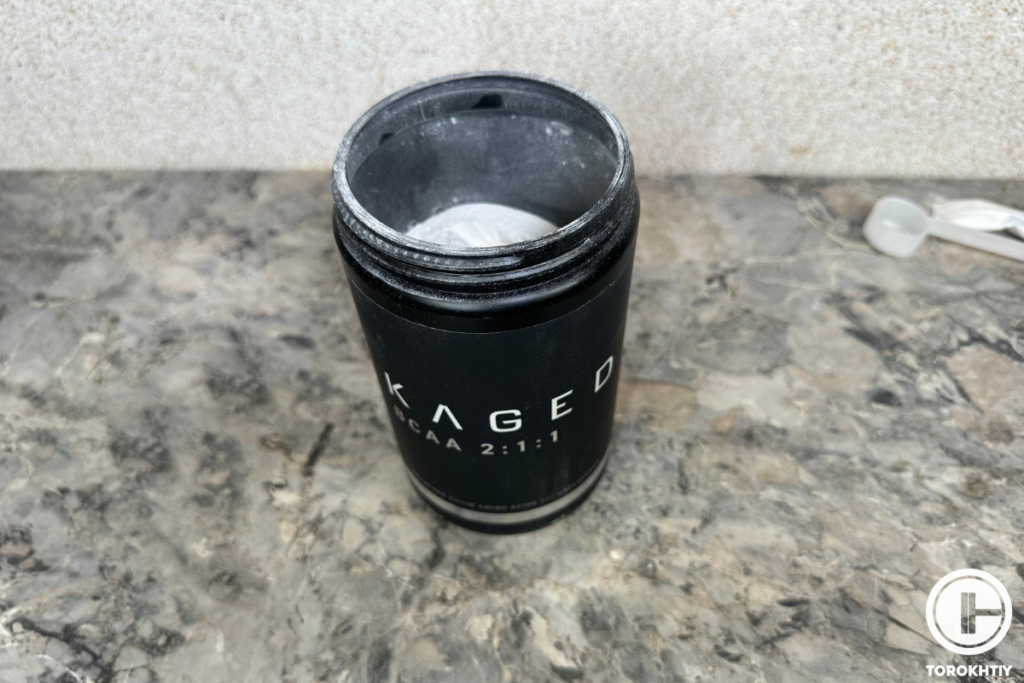
Protein vs Amino Acids
Protein powder encompasses a complete amino acid profile compared to individual amino acid supplements. Milk and soy are two common protein powders.
Milk protein can be divided into whey (20% of milk protein) and casein (the remainder). Whey can be further subdivided into concentrate (29-80% protein by dry weight) and isolate (more than 90% protein).
Soy protein can be categorized into flour, concentrates, and isolates, each containing 50%, 70%, and 90% protein, respectively.
Amino acids are sold individually as supplements or there is also protein powder with amino acids. Individual or combinations of amino acids have been theorized to have ergogenic potential. For example, branched chain amino acids (leucine, isoleucine, and valine) support protein synthesis, energy production, and attenuate fatigue during exercise.
Taurine has been shown to significantly increase VO2 max. An ‘amino acid cocktail’ containing the essential amino acids consumed within 1–3 hours before or following exercise may help support muscle protein synthesis.
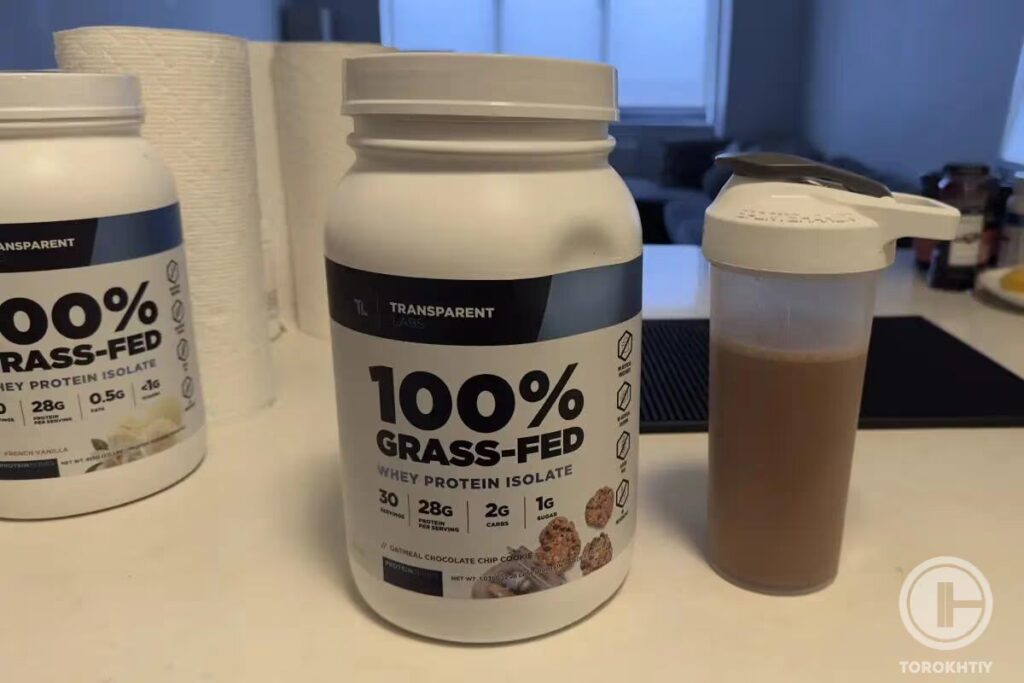
1. Processing
Protein powder is created through a process called filtration, which separates protein from other components such as fat and carbohydrates. The resulting protein is then dried and ground into a powder form.
Amino acid powders are created through a process called hydrolysis, which involves breaking down the protein into its individual amino acids using enzymes or acid hydrolysis. The resulting amino acid mixture is then purified and dried to create a powder form.
2. Average % Of Protein/Carbs/Fats:
The composition of protein, carbohydrates, and fat for protein powders vary depending on the amount of processing and type of protein powder. Amino acid powders, on the other hand, are typically 100% protein.
For the common whey protein:
- Whey powder: typically contains 11-14.5% protein, 63-75% lactose (carbohydrate), and 1-1.% milk fat
- Whey concentrate: typically contains 25-89% protein, 10-55% lactose, and 2-10% milk fat
- Whey isolate: typically contains 90% or more protein, 0.5% lactose, and 0.5% milk fat
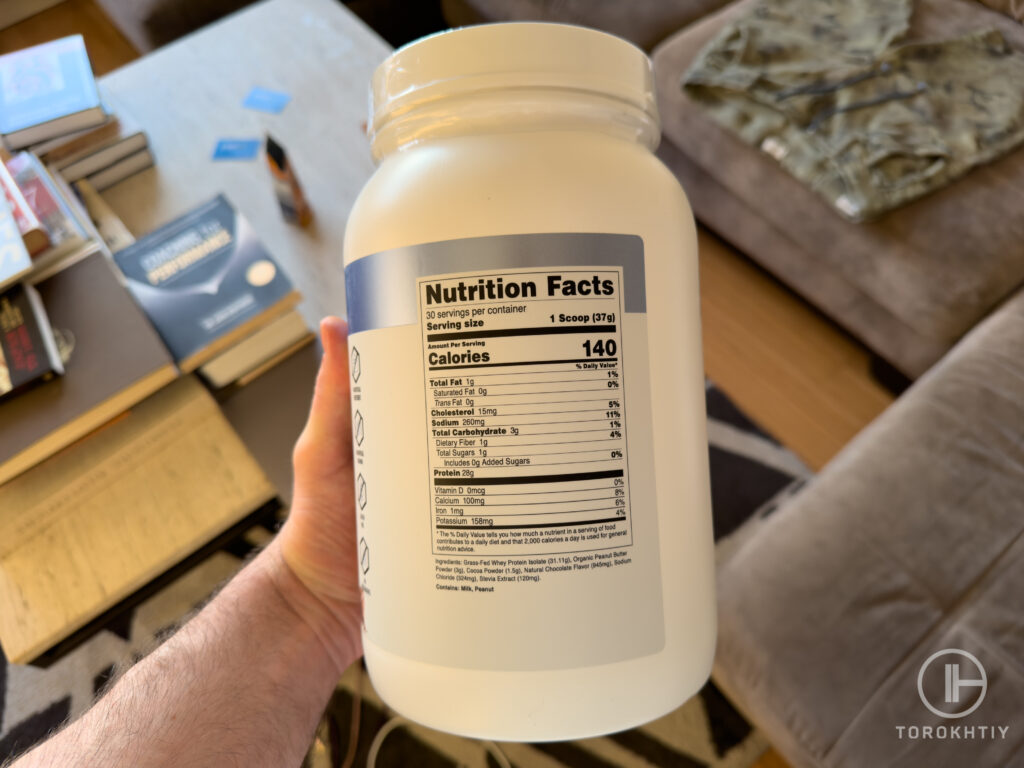
3. Price Range:
The price range for protein powders and amino acid powders can vary depending on the product. Generally, protein powders have an average cost of around $30–$50 for a 1–2 lb container. Amino acid powders can range from $15–$55 for a 0.5–1 lb container.
Protein powder vs Amino Acids: Summary
In summary, if you’re wondering if you should take amino acids vs protein, both can be beneficial for muscle growth, recovery, and repair. Protein powder can help you meet total daily protein requirements whereas amino acids can supplement specific amino acids that may be lacking.
1. Pros and Cons of Protein Supplements
Positives:
Could be better:
2. Pros and Cons of Amino Acid Supplements
Positives:
Could be better:
Protein vs Amino Acid: When to Use Each?
Protein supplements are ideal for people who need to increase their overall daily protein intake or for people who struggle to meet their protein needs through whole foods alone.
Amino acid supplements may be useful for people who require specific amino acids due to dietary restrictions that may make it difficult to get enough through food sources alone. For example, those who follow a plant-based diet may be low in lysine, methionine, isoleucine, threonine, and tryptophan.
Amino acid supplements may also be preferred by experienced athletes who are trying to get even small benefits from dietary changes.
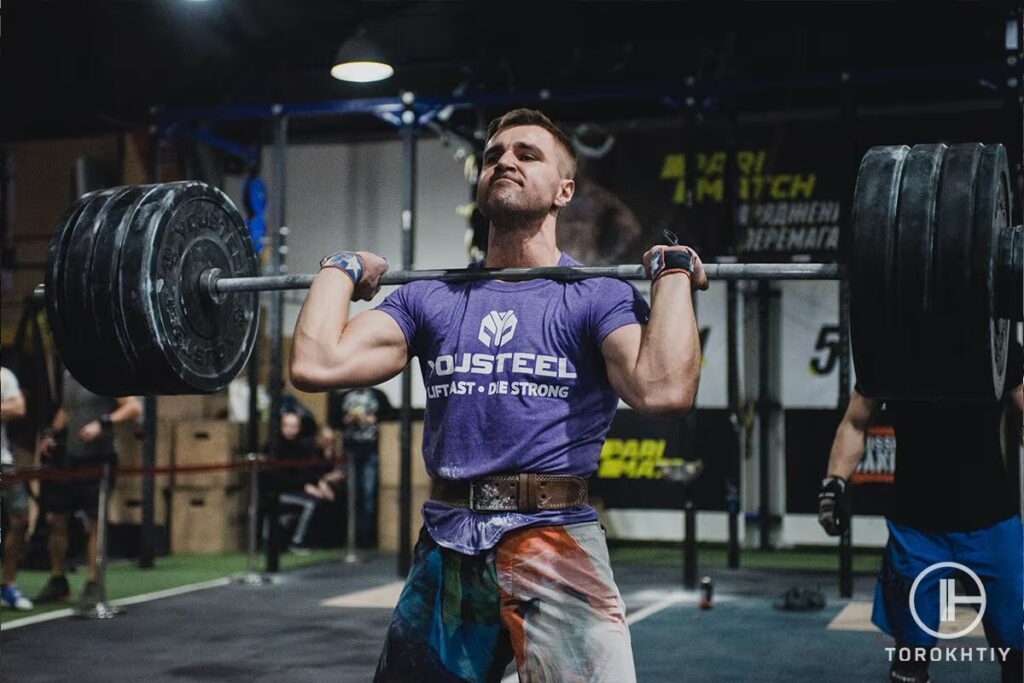
How to Pick Between Protein and Amino Acid?
1. Diet Type
If you follow a vegan or vegetarian diet, amino acid supplements may be more suitable to help you get an adequate amount of all amino acids. If you consume animal-based protein sources, then protein supplements are appropriate to supplement meeting your overall daily protein requirements.
2. Goals
If your goal is weight loss then a supplement with a high protein-by-weight ratio that is minimal in fat and carbohydrates can help. Amino acid supplements will typically have a high protein-by-weight ratio.
If you’re looking for something that supports muscle building and recovery, then a protein supplement that includes a slightly higher amount carbohydrates (and consequently a lower protein-by-weight ratio) would be more suitable.
3. Label Transparency
Look for supplements with transparent labeling that lists the ingredients and their respective amounts. Products that are third-party tested would have a certification on the label. This protects you as the consumer as the product is tested for harmful levels of contaminants and ensures supplements contain the listed ingredients and nothing else.
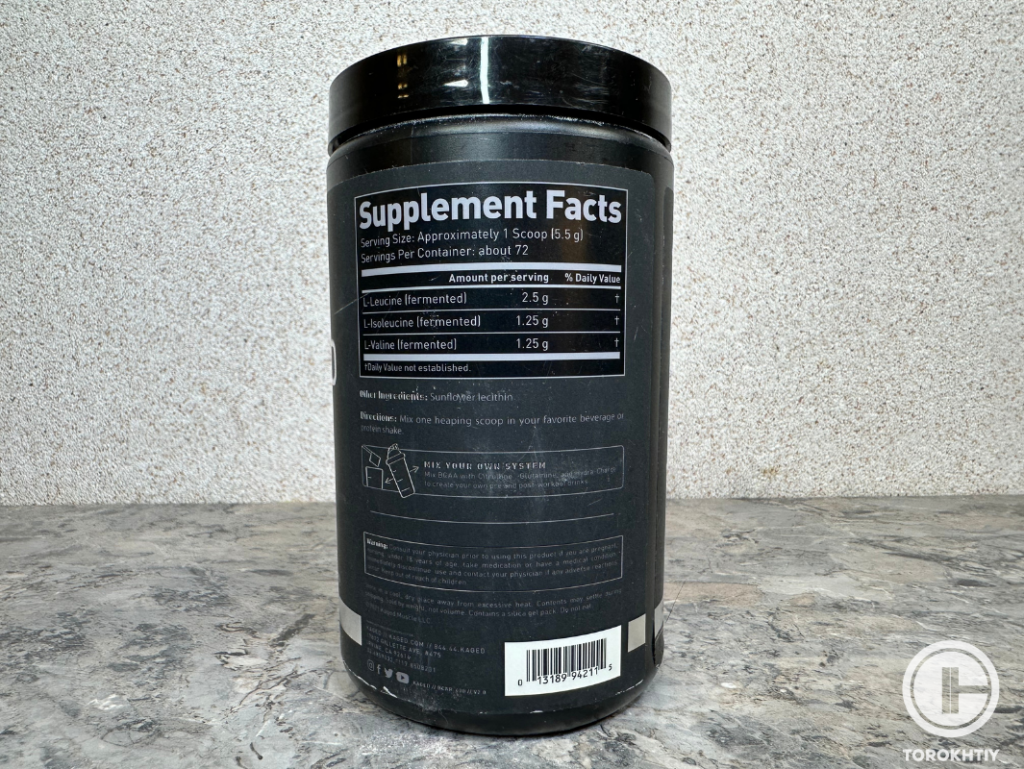
4. Value for Money
Consider the overall value for money based on the serving size, protein content, and price per serving. Keep in mind that a higher price doesn’t always mean better quality, so look for products that meet your protein or amino acid needs and fit your budget.
So What to Take?
There are a plethora of options out there when it comes to protein powder and amino acid supplements. Here are two that we have reviewed and could suggest for you to consider:
BulkSupplements BCAA
BulkSupplements has a ‘BCAA 3:1:2 powder’, which is a branched chain amino acid supplement that contains a 3:1:2 ratio of L-leucine, L-isoleucine, and L-valine. It is suggested to take ½ tsp once or twice a day, 30 minutes before a workout. This is an adequate dosage to optimize training adaptations.

BCAAs are often found in animal protein and if overall daily protein requirements are met, then taking any additional BCAA has not been found to be beneficial since improvements in strength and hypertrophy require meeting the requirements for all the essential amino acids. However, it has been suggested that the RDA for leucine for sedentary individuals should be 45mg/kg/day and higher for active individuals. Owing to the high leucine proportion in this supplement, it may be a convenient way to meet higher leucine requirements all in one source.
This supplement has good ingredient quality and value for money.
Future Kind + Organic Vegan Protein Powder
If you are looking for a plant-based protein option, Future Kind + offers an organic vegan protein composed of organic non-GMO pea protein isolate that is offered in a vanilla or chocolate flavor. There is 20g protein (~73% protein-by-weight), 0g fat, 1g carbohydrate (0g added sugar, sweetened with stevia), and 85kcal in a one scoop serving. Therefore, suitable for anyone looking to cut weight.
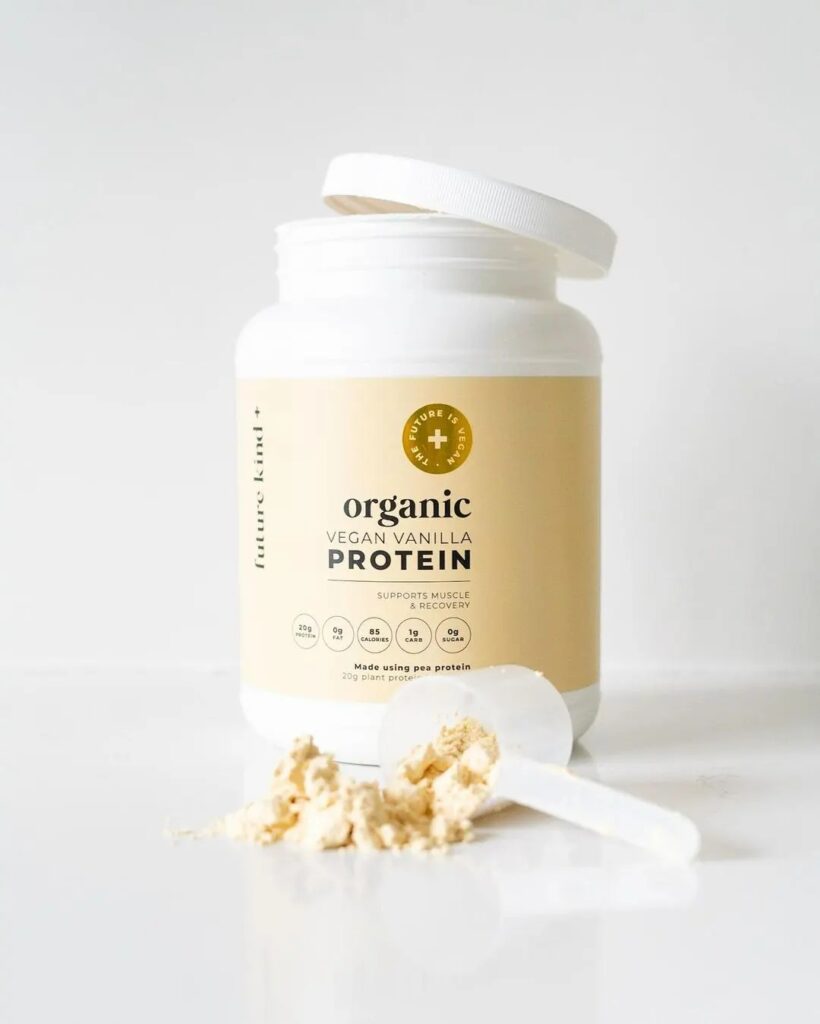
Pea protein is low in some particular amino acids such as methionine (an essential amino acid) and cysteine; therefore, it is important to ensure consumption of other sources of these amino acids (such as brown rice protein). This product has a good taste, a creamy non-chalky texture, mixes well, and does not contribute to bloating.
FAQ
Do Amino Acids and Protein Go Together?
Yes. Some people might use protein powder as a general source of protein, and then supplement with specific amino acids that are lacking elsewhere in the diet.
Do I Need Amino Acids if I Take Protein? Can I Take Amino Acids Instead of Protein?
If you are already consuming enough protein from a variety of sources, then additional amino acids are generally not necessary. A diverse protein intake can provide you with a complete amino acid intake.
However, for athletes with long and hard workouts, taking extra BCAAs with a high leucine proportion can provide some performance, recovery, and immunity benefits. For people whose diets are poor in certain amino acids, supplementation may also be beneficial.
Conclusion
In this post we covered the difference between amino acids and protein, what they are, pros and cons of each, how to decide when to use either one, and provided suggestions on two possible products. Do you use protein or amino acid supplements? How have they helped you meet your goals? Let us know below!
Also read:
- Can Protein Powder Make You Sick
- How Much Does Protein Powder Cost
- How Long Does It Take To Absorb Protein
- Can You Put Protein Powder in Cereal
- How Many Protein Shakes a Day
- What to Mix Protein Powder With
- Does Protein Build Muscle Without Working Out
- Difference Between Whey and Isolate
References:
- Protein – Which is Best? // Ncbi: https://www.Ncbi.nlm.nih.gov /pmc/articles/PMC3905294/
- International Society of Sports Nutrition Position Stand: protein and exercise // Biomedcentral: https://jissn.biomedcentral.com/articles /10.1186/s12970-017-0177-8
- Composition of Protein Supplements – A Web Based Survey // Ijsr: https://www.ijsr.net/archive /v5i11/ART20162908.pdf
- Branched-chain amino acids in health and disease: metabolism, alterations in blood plasma, and as supplements // Biomedcentral: https://nutritionandmetabolism.biomedcentral.com /articles/10.1186/s12986-018-0271-1
- Dietary Supplements and Sports Performance: Amino Acids // Biomedcentral: https://jissn.biomedcentral.com /articles/10.1186/1550-2783-2-2-63
- Vegan diets: practical advice for athletes and exercisers // Ncbi: https://www.ncbi.nlm.nih.gov/pmc /articles/PMC5598028/
- Supplement and Vitamin Certification // Nsf: https://www.nsf.org/consumer-resources /articles/supplement-vitamin-certification
- The Importance of Branched-chain Amino Acids and Nitrate in Sports Performance and Health // Researchgate: https://www.researchgate.net/publication /359138959_The_Importance_ of_Branched-chain_Amino_ Acids_and_Nitrate_in_ Sports_Performance_and_Health
- A systematic review, meta-analysis and meta-regression of the effect of protein supplementation on resistance training-induced gains in muscle mass and strength in healthy adults // Bmj: https://bjsm.bmj.com /content/52/6/376.long
- Leucine supplementation and intensive training // Ncbi: https://pubmed.ncbi. nlm.nih.gov/10418071/
- Protein content and amino acid composition of commercially available plant-based protein isolates // Ncbi: https://www.ncbi.nlm.nih.gov /pmc/articles/PMC6245118/
- Photos made by Torokhtiy Media Team.
Why Trust Us?
With over 20 years in Olympic weightlifting, strength training, nutrition coaching, and general fitness our team does its best to provide the audience with ultimate support and meet the needs and requirements of advanced athletes and professional lifters, as well as people who strive to open new opportunities and develop their physical capabilities with us.
By trusting the recommendations of our certified experts in coaching, nutrition, and sports training programming, as well as scientific consultants, and physiotherapists, we provide you with thorough, well-considered, and scientifically proven content. All the information given in the articles concerning workout programming, separate exercises, and athletic performance, in general, is based on verified data.
The product testing process is described in more detail here.
Author: Oleksandr Maksymenko
Certified Sports Nutritionist,
MSc Sports Dietetics
Specializing in: Weight management, Fitness / Sports nutrition
Oleksandr is a professional fitness nutritionist certified by the Fitness Professional Association (FPA). He follows the principles of evidence-based dietetics and fosters a healthy relationship with food in his clients, ensuring there are no strict prohibitions on their favorite foods or frequent lapses. His primary goal is not only to achieve results for you but also to sustain them over the long term, all while enjoying tasty and delicious food.



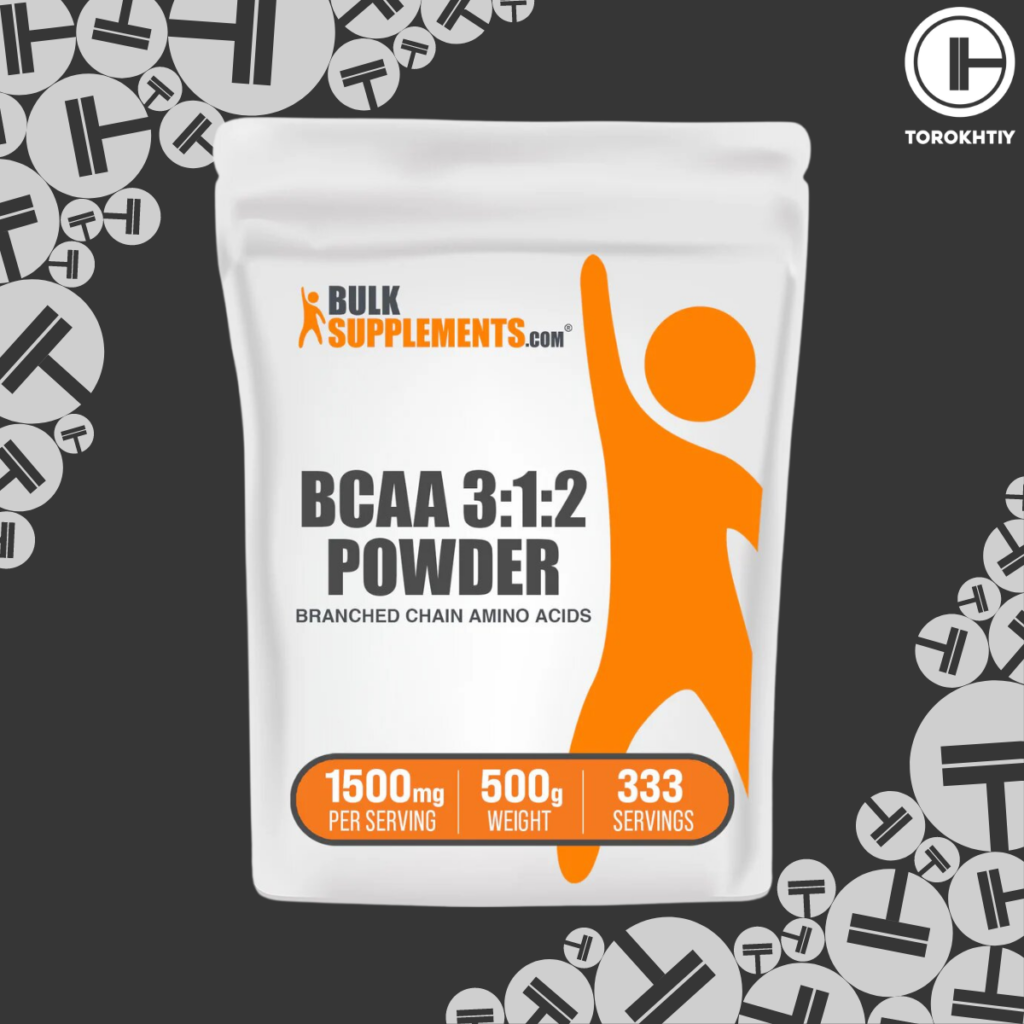
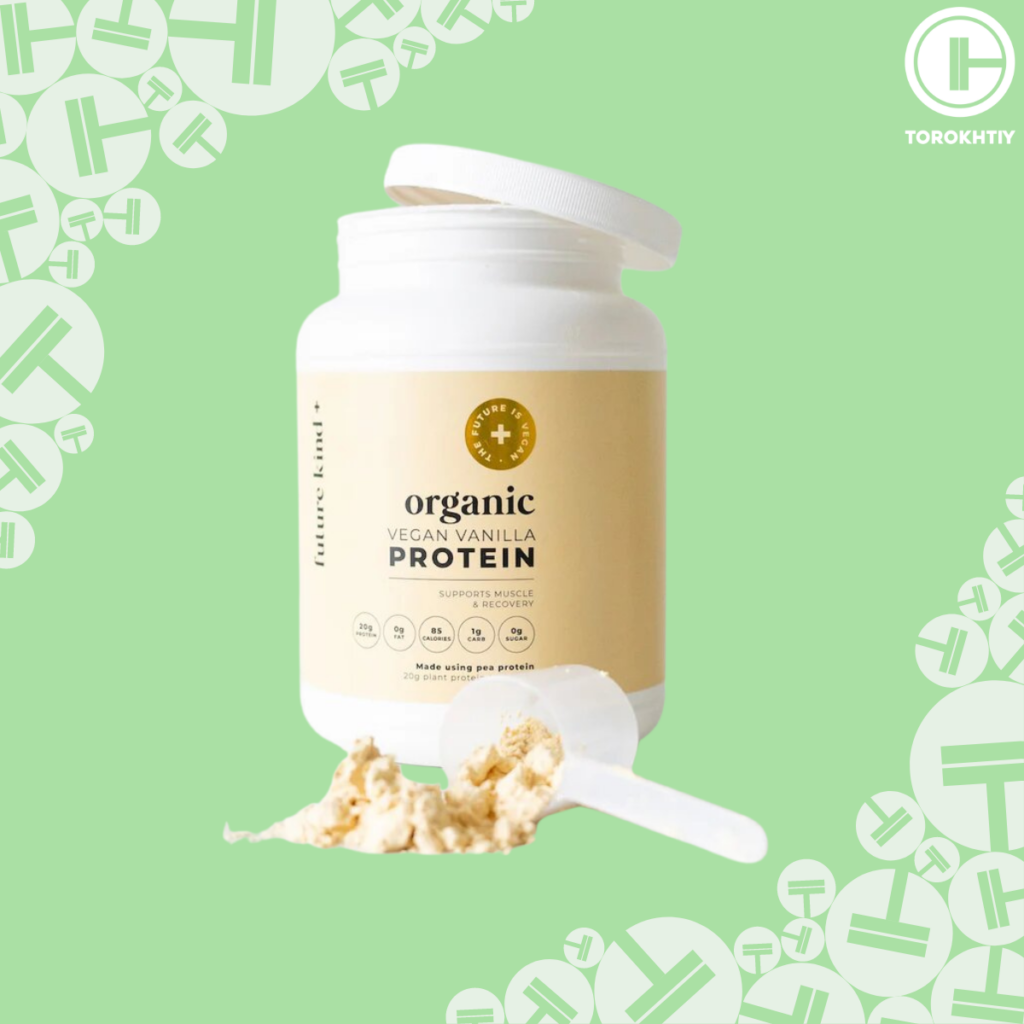
Still have questions after reading our article? Unlock your full potential by engaging with our experts and community! Don’t hesitate — leave a comment below and Oleksandr Maksymenko will provide a personalized answer and insights to help you reach your goals.